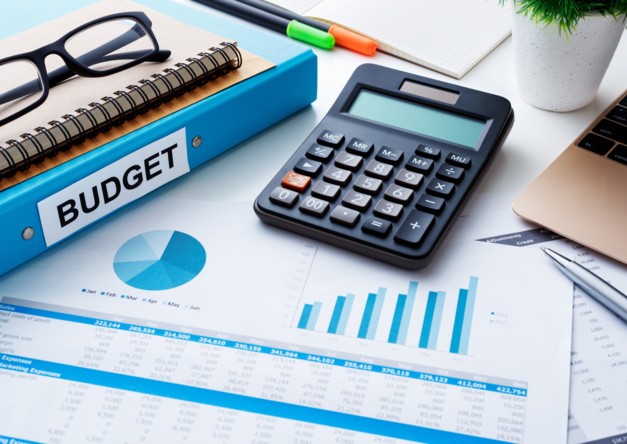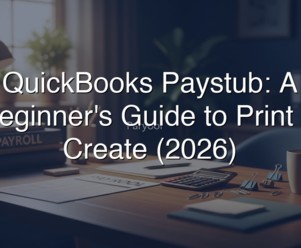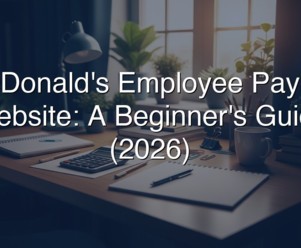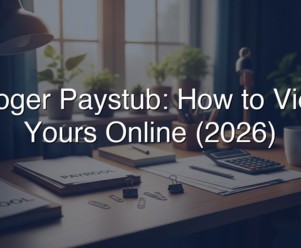Best Ways to Manage Finances: Everything Freelancers Need to Know
By Davis Clarkson , February 6 2020

Almost every adult US American dreams of one day becoming their own boss and running their own business. That's one reason why more and more people are aspiring to become a freelancer. Making your own schedule, gaining your own clients and having the world as your "desk", it doesn't get much better than that!
However, there is a side to freelancing that most people don't consider... the financial side of running your own business. While budgeting may not come naturally to you, there are certain things you can do to make things easier come tax season. Here are a few tips for the best way to manage finances if you're starting out on your freelancing endeavor.
Separate Your Personal And Business Expenses
This is one of the most common ways for first-time freelancers to become disorganized. Never taking the time to split personal expenses from business expenses will cause you a major series of headaches when tax season rolls around. An easy way to separate these two, yet not have to make a conscious effort in everyday life, is by opening up a business checking account.
This will significantly help in two ways. First off, you won't have to comb through a year's worth of purchases during tax season to separate the two. Secondly, It'll make budgeting for each aspect of your life far simpler (more on that in a moment). If you claim a separate business in the form of a limited liability company (LLC), it is crucial to draw a thick line between your business and personal expenses.
Failure to do so could prove costly down the line.
Budget Your Personal Life
Whether you're a freelancer or not, choosing to not budget your personal expenses can turn into a downward spiral very quickly. If you're not budgeting then you a) aren't paying attention to the money you have saved and b) aren't tracking the amount of money you're spending. The amount of money you spend each month on things you don't need would shock you.
Simply creating a budget on an excel sheet can help you start to cut back on overspending. We live in a world that throws products to buy in our face 24/7, the budget lets us know which ones we can afford and which we can't. Budgeting will also help you stay in line with saving for the tax season and putting aside the necessary money at year's end.
This is ultimately a practice of self-discipline, installing into your life could be the difference between saving thousands of dollars each year and burning through money just mere days after receiving it. One of the top missions to your budget is giving each dollar an assignment. In other words, you should be applying every dollar you make towards an aspect of your budget such as savings, groceries, entertainment, student loans, etc.
That way, every single dollar is accounted for and has a determined purpose before it even hits your bank account!
Set Up An Emergency Fund
You've undoubtedly had those moments in life where a HUGE expense was dropped on you out of nowhere. Maybe the car broke down suddenly, air-condition won't turn back on, or some other slap-in-the-face incident occurred. That was certainly an expense you weren't expecting to pay. While your new budget is offering you a wiggle room, it's not offering you THAT much of a wiggle room...
It's for those very instances that you should be setting aside money into an emergency fund. Emergencies are going to happen; they hit us all multiple times throughout our lives. Being prepared with the financial aspect of them provides one less thing to worry about! Set yourself up with a fund that's nearly-untouchable until you need it most.
Banks can help you with this step, you'll just need to let them know how much you want to transfer, the frequency of transfers, etc. A basic rule of thumb is to have at least three months' worth of expenses covered by your emergency fund. So, if your monthly expenses come out to $2,000 then you should save $6,000 in your emergency fund.
Study Your Expense Trends
While you shouldn't go through life studying yourself like a mad scientist surveying mouse, it's beneficial to read through how you spend your money. Reading through your expenses every few weeks will give you an idea of how to appropriately manage your money. It also helps you make the necessary adjustments to maximize your budget.
For example, you often spend your time going to nearby coffee shops to grab caffeine and do work there. But when you read back through your expenses a week later, you realize that over the course of the 5 hours you spent at the shop you also bought lunch and an extra coffee each time.
So, next week, you can either raise your coffee shop budget to pay for the lunches there or make a mental note not to spend more than 2-3 hours at the shop each day. You'll find that tiny adjustments such as this will help you become more disciplined with your finances.
Best Way To Manage Finances With Documentation
The best way to manage finances that come with freelancing is with budgeting, preparation, and providing the necessary documentation. Even though you're killing it as a one-man/woman wrecking crew through your freelance business, you need to be providing proof of income. Be sure to check out this article on proof of income for self-employed people and why it plays such an important role in your business. If you are in need of a paystub, check out our online paystub creator.
For more inquiries, please reach out by phone at (888) 789-7209.
Similar Articles
We’ve helped numerous individuals and businesses create professional documents! Create yours today!










